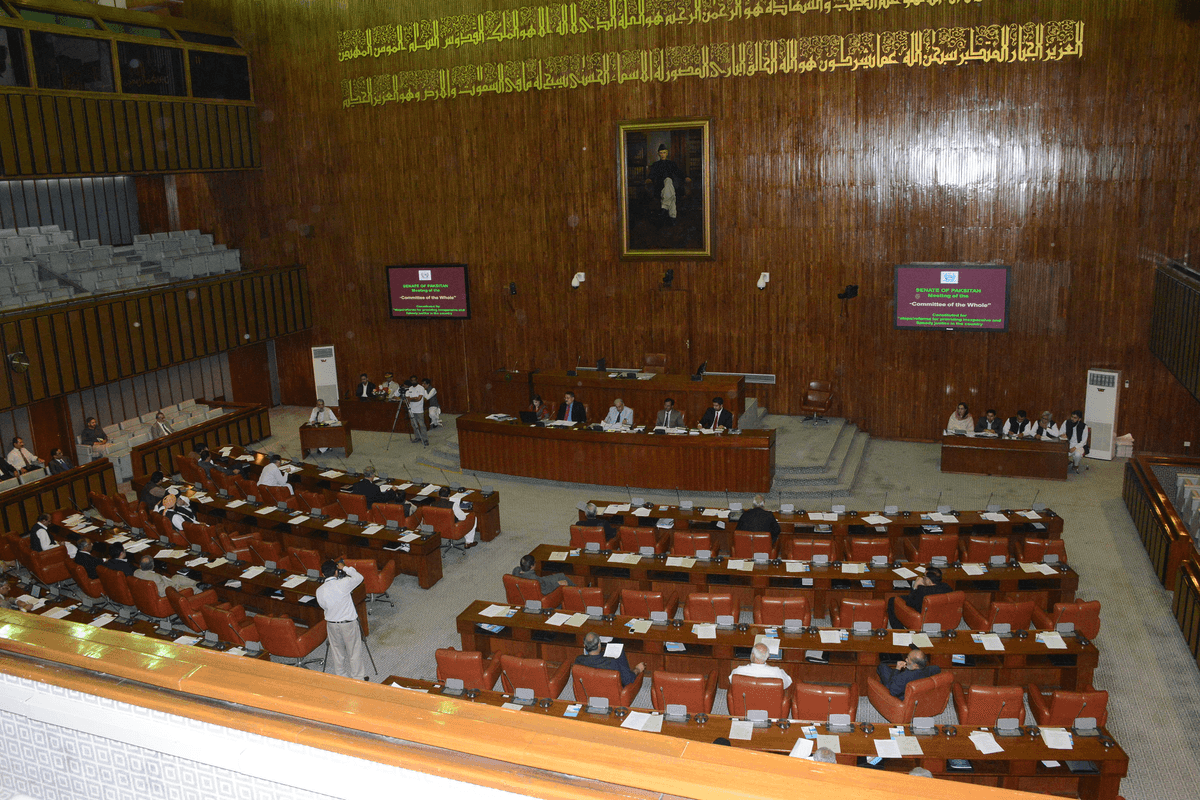Pakistan govt faces questions over rising fuel costs, power debt and EV plans
Lawmakers questioned Pakistan’s high domestic fuel prices and rising power-sector debt, which stood at PKR 1.594 trillion as of August 31, 2025
Ali Hamza
Correspondent
Ali; a journalist with 3 years of experience, working in Newspaper. Worked in Field, covered Big Legal Constitutional and Political Events in Pakistan since 2022. Graduate of DePaul University, Chicago.

File photo of Pakistan’s Senate.
Senate website
Pakistan’s energy strategy came under scrutiny in the Senate on Thursday as lawmakers pressed the government for clarity on fuel pricing decisions, the country’s ballooning power-sector debt and its timeline for developing electric vehicle (EV) infrastructure.
In the latest session, legislators questioned why domestic fuel prices had remained high despite a decline in global oil markets.
Minister of State for Petroleum Ali Pervaiz Malik told the Senate that the government raised the petroleum levy by PKR 8 per liter on petrol and PKR 7 per liter on diesel beginning April 16, 2025, generating PKR 66.13 billion in revenue by the end of September.
The funds, he said, were deposited into the Federal Consolidated Fund, while decisions on their utilization - such as whether to finance projects like the N-25 highway - are made outside the Petroleum Division.
Lawmakers also sought an update on the country’s mounting power-sector circular debt. Energy Minister Sardar Awais Ahmad Khan Leghari said the debt stood at PKR 1.594 trillion as of August 31, 2025.
He noted that distribution-company inefficiencies had been cut by Rs 193 billion in FY2025 compared with the previous year, and that renegotiations with independent power producers had secured a PKR 259 billion waiver in late-payment interest.
The government, he added, intends to refinance existing obligations at lower rates and aims to eliminate the entire stock of circular debt within six years without passing additional costs on to consumers.
The discussion also turned to Pakistan’s EV infrastructure goals. Responding to a query from Senator Mohammad Abdul Qadir, Leghari said the government’s target of more than 3,000 EV charging stations is part of a five-year national rollout strategy from 2025 to 2030. To date, 72 licenses have been issued under new EV Charging Infrastructure Regulations.
For the current fiscal year, he said, authorities plan to deploy 240 stations, largely through private-sector investment. Oversight of the network involves the Ministry of Industries and Production, the National Energy Efficiency and Conservation Authority, NEPRA and power distribution companies.







Comments
See what people are discussing